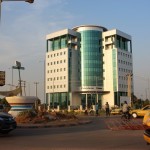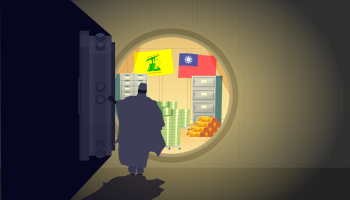When President Yahya Jammeh wanted another private jet in 2012, he turned to his country’s pension fund.
The fund’s then managing director, Abdoulie Cham, quickly set up a US$4.5 million credit line for the purchase of a private plane, according to documents reviewed by OCCRP. Cham agreed with Jammeh’s office to complete the transaction using a commercial bank, which would allow “the extreme confidentiality” the President’s office required.
It wasn’t the first seizure of money from one of the few safety nets Gambians have for their futures, nor would it be the last.
Gambia’s pensioners have paid the highest price for Jammeh’s looting.
“All my life I have worked for my government, for my country,” said Abubacarr Dem, 79, a retired civil servant who told reporters his career spanned 40 years and four ministries.
“I had hoped to live from my social security benefits but what I am paid at the end of the month is nothing,” he said. “I get 900 dalasis ($25) every month. That is not enough to even buy a bag of rice.”
Between 2010 and 2014, Jammeh diverted at least $60 million from the Social Security and Housing Finance Corp. (SSHFC), which manages payments for disability, housing, and pensions in one of the least developed countries in the world, the records show.
It gutted the state corporation of the money it needed to assist the country’s civil servants and soldiers, its cleaners and teachers, as well as the many who toiled in the private sector earning an average of $534 per year.
“Jammeh considered everything in the state to be his own,” said Sidi Sanneh, one of the country’s foreign affairs ministers during Jammeh’s 22-year regime, which ended after he lost the 2016 presidential election. “But to loot the pension fund is perhaps the worst crime because it is akin to stealing the future.”
More than $18 million was illegally diverted from the SSHFC-managed National Provident Fund, which holds pension funds for Gambian citizens, to fund Jammeh’s purchase of the private jet and fire and emergency vehicles, among other things.
Another $18 million from the SSHFC went to Gam-Petroleum Gambia Co., a company linked to Jammeh crony Mohammed Bazzi, a Lebanese businessman and Hezbollah financier who benefited from many of Jammeh’s corrupt schemes. Gam-Petroleum generated no revenue until 2014.
Most of the deals Jammeh made using the fund’s reserves clearly served his patronage network, not the Gambian people.
For example, his office ordered the fund and the Gambia Ports Authority to buy two secondhand ferries that were over two decades old for about $6.8 million from a Marshall Islands-based company, Gallia Holdings.
Gallia, then newly created, was run by Greek shipping investor Stavros Galanakis. Letters from Jammeh’s office confirm the ferries were not operational but officials in the presidency pressed anyway for the payments to the offshore company.
Overseeing the deal was Jammeh insider Amadou Samba, chair of the SSHFC’s board, which appeared to bypass the usual procurement practices, including due diligence and cost benefit analysis, according to the records obtained by OCCRP.
When the ferries were delivered, they were unusable because of their poor condition and because Gambia did not have the necessary infrastructure. Just who ultimately benefited from the $6.8 million invested by the Port Authority and the pension fund is unclear. State officials were listed as beneficiaries alongside Gallia.
Sometimes withdrawals from SSHFC were made in cash. In 2011, Njogu Bah, then the secretary-general of the Office of the President, withdrew $500,000 in cash from its accounts.
The SSHFC also provided loans to other government entities drained by Jammeh’s directives. Ultimately, more than 70 percent of the loans and investments that Jammeh’s office ordered from the corporation were written off or remain in a “non-performing” status, according to OCCRP’s analysis of the documents.
By October 2017, the SSHFC was drowning in a debt of 1.7 billion Gambian dalasis ($34.3 million) under the weight of non-performing loans and dodgy investments.
When there were repayments, the funds came from other institutions such as the central bank.
Through an attorney, Samba declined to respond to requests for comment, citing the ongoing investigation. Bazzi did not respond to requests for comment, and Bah, Cham and Galanakis could not be reached. The government of Equatorial Guinea did not respond to requests to reach Jammeh, who is known to be living there. Gambia’s current government did not respond to requests for comment.
With additional reporting by Saikou Jammeh and Daniela Lépiz.








